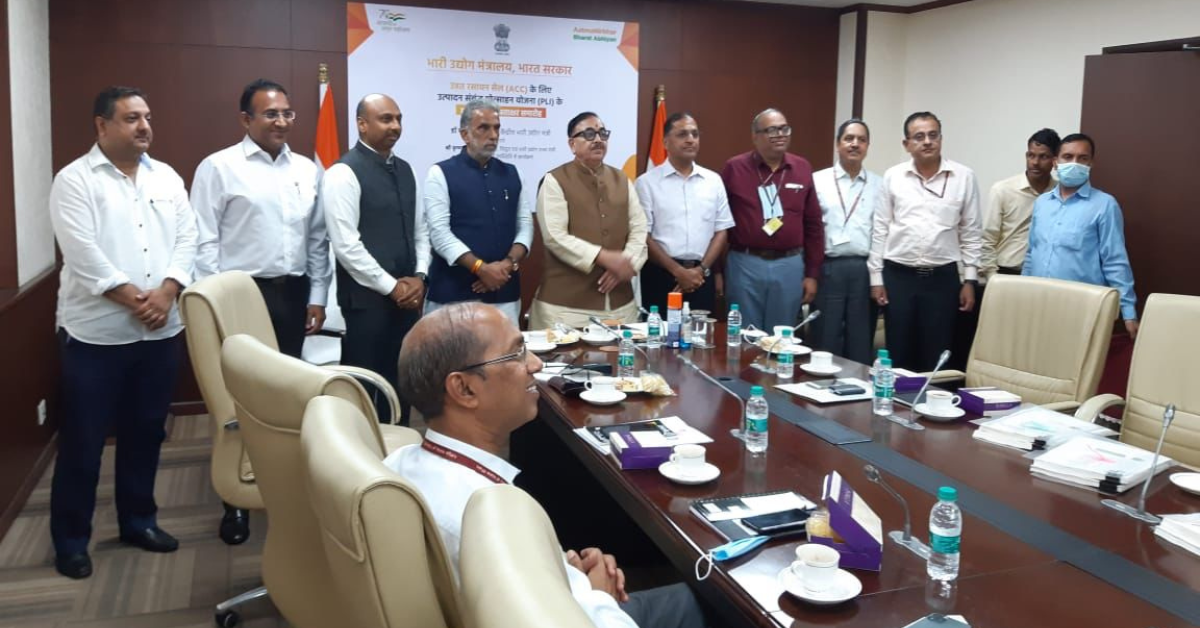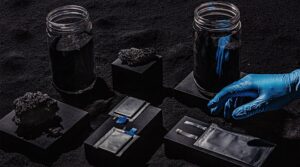Ola Electric was amongst the companies selected by the government to receive incentives under its INR 18,100 Cr PLI scheme for for manufacturing EV battery cells
Ola Electric is the only Indian EV company to be awarded incentives under Advanced Cell Chemistry (ACC) PLI scheme, the startup said
Ola’s roadmap to develop cell technology and manufacturing is progressing intensively: Bhavish Aggarwal
Electric mobility startup Ola Electric on Thursday (July 28) announced signing of an agreement with the Ministry of Heavy Industries under the government’s Production Linked Incentive (PLI) scheme to manufacture advanced chemistry cells for EVs in India.
The government of India had approved the PLI scheme for manufacturing the EV battery cells at an estimated outlay of INR 18,100 Cr in 2021. In March this year, Ola Electric, along with Rajesh Exports, Hyundai Global Motors Company, and others, was selected for the scheme and would receive incentives for 20-gigawatt hours (GWh) of battery storage capacity.
As per Ola Electric’s latest statement, it is the only Indian EV company to be awarded incentives under Advanced Cell Chemistry (ACC) PLI scheme.
“Today, 90% of global capacity for cell manufacturing is in China, and to reverse this import dependency, locally manufactured cell technology is key,” Ola CEO and founder Bhavish Aggarwal said. “The ACC PLI scheme will be instrumental in making India self-reliant and localising the most critical aspects of the EV value chain.”
Ola’s roadmap to develop cell technology and manufacturing is progressing intensively, making it a stronger vertically integrated mobility company across products, mobility services, and tech, Aggarwal said.
Earlier this month, Ola Electric unveiled its first indigenously developed lithium-ion (Li-ion) cell NMC 2170. Its mass production is expected to begin by 2023.
Meanwhile, it also announced an investment of $500 Mn to set up its Battery Innovation Center (BIC) in Bengaluru, an R&D facility for EV battery cells, which would have the capability to develop complete packages of battery pack design, fabrication, and testing under one roof.
The startup was reportedly also in talks with several global suppliers across regions with plans to build a battery cell manufacturing plant in India, which would have a capacity of up to 50 GWh.
It is pertinent to note that while Ola Electric is getting government support to manufacture EV battery cells in the country, the startup is also under scrutiny over fire incidents with its electric two-wheelers earlier this year.
Besides Ola Electric, the vehicles of Okinawa Autotech, Pure EV, and Jitendra EV also went up in flames this year, raising concerns about safety and quality standards of batteries. The government has also sent show-cause notices to these manufacturers over the fire incidents.
The Central Consumer Protection Authority (CCPA) and Minister Of Road Transport And Highways Nitin Gadkari confirmed that notices were sent to the escooter manufacturers whose vehicles caught fire in recent days.
“We have asked them to provide reasons for a series of fire incidents in EVs and why the regulator should not take action against them,” CCPA Chief Commissioner Nidhi Khare recently said.
However, unperturbed by these issues, Ola Electric is planning to start manufacturing electric four-wheelers also by next year.
Ola Electric, which held the top position in terms of escooter registration earlier this year, has been witnessing a slump in registrations over the last three months. Its vehicle registrations dropped over 27% month-on-month (MoM) to 9,255 units in May from 12,703 units in April. In June, registrations declined further by over 36% MoM to 5,883 units, as per Vahan data as of July 4.










